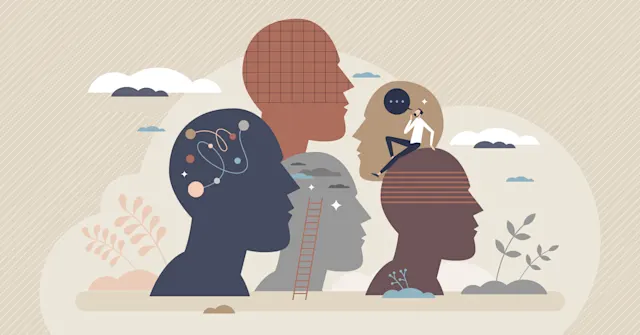Here are some of my actual school reports from secondary school:
Student Progress in Technology: Parul has worked well in Textiles, although at times she has allowed herself to become easily distracted. Parul has often lost focus in lessons and has distracted others with silly behaviour and this has hindered her overall progress. Parul’s design work has gradually improved and her final product has been made to a high standard with excellent hand embroidery. I wish Parul every success in her chosen subjects for GCSE! Teacher: L Jones
Student Progress in Curriculum Studies: Parul’s effort throughout the year has been very good overall. This is reflected in the fact that none of her teachers found her effort less than good in the Spring Term. It is commendable that she has worked hard in PE to raise her effort grade from a 4 to a 2 since the start of the year. However, her PE teacher comments on the Parul that I see in registration, she is talkative and too easily distracted by trivia, she is easily led and lacks concentration. I feel that Parul considers some periods, including form period and PE, to be less relevant than other subjects and not to warrant her full attention. She is making good progress towards her very high end-of-Key-Stage targets, having already achieved her target in French.
University was even worse for me, the lack of structure meant I barely scraped by. I knew I had it in me but I couldn’t unlock the so-called potential everyone kept telling me I had. I felt like my life was in a constant state of disorganised chaos. It wasn’t until 2021 when I got my answers, it was never a personality fault, it was ADHD. All of sudden, it all made sense. I talk about my journey to an ADHD diagnosis in detail in this internal talk I did, and also in this article I wrote.
Getting my diagnosis was not just about getting a label, it was about embracing my differences and also enabling me to get the support I needed in the workplace, something I desperately lacked in school and university. I was tired of never finding my potential and getting my diagnosis has been instrumental to that.
The journey of disclosing my ADHD at work
In March 2022, I started a new job for the very first time since my diagnosis. When I joined xDesign, I had a much clearer understanding of who I was, how my brain worked, and what I needed to thrive. This made it much easier for me to advocate for myself, as I don’t expect anyone to automatically understand my needs.
I disclosed my ADHD on my onboarding form, though I understand that disclosure is a privilege not everyone can afford. Even though I was open about my ADHD on LinkedIn, I felt very safe letting xDesign know “this is who I am and I need different support to others”. Whilst finding my feet in a different role and company, I also worked with my line manager and People Partner to put reasonable adjustments in place to help me unlock my potential. I was no longer draining my mental energy to mask constantly, I had freedom to work in a way that worked best for me and I got to harness all the positive traits ADHD gives me.
As an ex-tech recruiter, my passion has always been helping people. I’ve helped countless people into new jobs. I realised it was now time to help people in another way. In my three month probation meeting, the review form had a box for “Do you feel like you’re making a difference and adding value”. Within this box I expressed a desire to become a Neurodiversity Advocate to help other Neurodivergent employees like I’ve been able to help myself. Fortunately, they welcomed the idea with open arms and this got me excited to make a difference on a bigger scale.
Becoming a neurodiversity advocate
Over the last few months, I’ve worked closely with our People Team, particularly Karrell Simms who is one of our Senior People Partners who focuses on our DEI initiatives. As the Neurodiversity Advocate role was new to xDesign, we shaped it together.
One of the key things we’ve worked on together is feeding into and adapting policies and processes. Originally, our reasonable adjustments policy was a small paragraph within the DEI policy, it is now a 10-page stand-alone document. It shows the process of requesting reasonable adjustments and what reasonable adjustments are very clearly.
The reason this advocate role is so important to me is because I felt quite lost after my diagnosis two years ago. I didn’t have much of a community of people like me around me and I didn’t always know what help to ask for. After running an internal session on “An Introduction to Neurodiversity”, we had a record number of people coming forward to disclose a neurodivergent condition.
For others, this sparked a curiosity to learn more about neurodiversity to embrace it more in the workplace. We’re still shaping up the community and the role but I’ve been so proud to see how our internal community has grown. I see xDesign employees sharing their experiences of getting a diagnosis, sharing tips, and offering support to others. The community here is incredibly strong and not only that, we have allies who advocate for us too.

